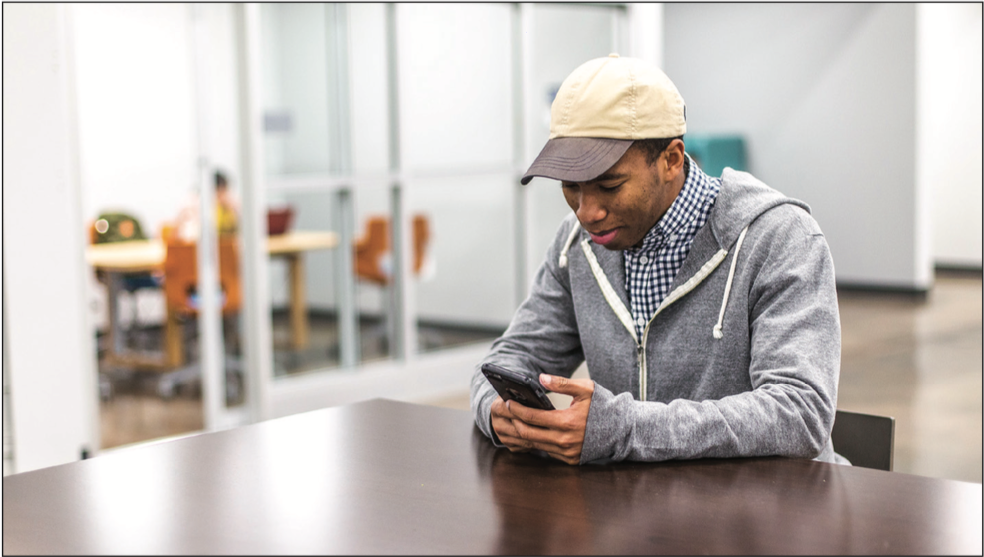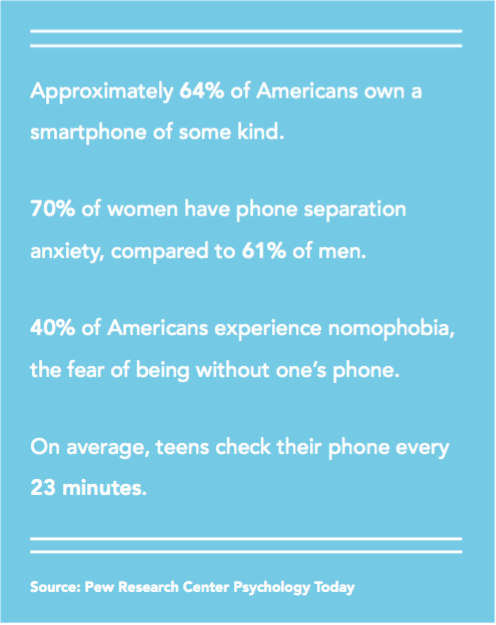Liberty partners with campaign to encourage healthy technology habits
At Liberty University, it is not uncommon to see students attached to their phones in food lines, on buses and even during class.
Because of this, the Center for Digital Wellness is partnering with Reboot, an organization dedicated to bringing back community and creativity, to promote the National Day of Unplugging on campus.
The 24-hour technology fast will begin at sundown March 3 with the goal of bringing real-life interaction back to communities across the United States.
“This is an age of wonder and amazement with technology,” National Communications Manager for Reboot Tanya Schevitz said.
“But many people have lost the balance in their use of technology, so they no longer are able to sit alone and be comfortable with their thoughts. They don’t know how to be bored, and they no longer strike up conversations with random people at a restaurant, cafe or bus stop.”
Schevitz said Reboot established the National Day of Unplugging in 2010 because the organization noticed people were exhausted by the constant strain of technology.
The team at Reboot saw that personal electronics were not only a distraction, but were also creating barriers between families and communities.
“(There is an) expectation that you are always reachable,” Schevitz said.
“That you will respond immediately to that beeping, buzzing and ringing of texts, emails and phone calls has created a society of people who are on edge and overwhelmed and disconnected from those actually around them.”
Overall, Schevitz said the campaign’s primary goal is to help people become more mindful of their technology use and give them opportunities to reconnect with their friends, family and community.
Dr. Sylvia Hart Frejd, founder and executive director at Liberty’s Center for Digital Wellness, said the center opened in 2015 with a similar vision to that of Reboot.
For almost three years, Frejd has led campus campaigns that encourage students to put down their phones and invest in real relationships.
She said the National Day of Unplugging creates an opportunity to both raise awareness for the issue and provide an established time for students to refocus during a busy part of the semester.
“Technology has helped us so much, but the problem is learning to steward and manage it well,” Frejd said.
“Really the whole idea behind the National Day of Unplugging challenge is to unplug from digital life and plug into real life.”
After filling out the online pledge, participants are encouraged to print out an “unplug sign” from the Reboot website and write down their purpose for taking part in the challenge.
They are then encouraged to take a photo with the sign and share it on social media to inspire their followers to join the challenge.
“The signs help people to spread the message,” Frejd said.
“Having the goal and reasoning behind it is a lot better than just trying to get off your phone. It gives it a greater sense of meaning.”
Additionally, Frejd said the Center for Digital Wellness recommends participants come up with a list of non-digital activities they will do during the time of the campaign.
She said most people choose to go outdoors, spend time with friends or take a personal day to read and pray.
“Technology should enhance your real life relationships and not be a substitute,” Frejd said.
“People say, ‘How do I know if I’m addicted?’ and I tell them to take the unplug challenge. Most people will come away saying, ‘Oh my gosh, I had no idea how addicted I was.’”
Overall, Frejd said the main goal of Liberty’s Digital Wellness Center is to help students and faculty keep track of their technology use.
Because balancing screen-time in college is a difficult task, Frejd said her mission with the campaign is to foster a better time-management system for personal electronics.
“Let’s be in technology more intentionally,” Frejd said.
“And be in it less where we are wasting our time. With good use, it’s a great tool for Christians to utilize in a positive way and be a light to this world.”
Frejd said she hopes the campaign will help individuals sense how attached they have become to their technology, as well as help them come up with tangible steps for controlling their digital media consumption each day.
“My dream is that they will have some conversations with God, themselves and other people and reclaim conversation,” Frejd said.
“And that they’ll be challenged afterwards to take more time where they put their phones down, unplug and just enjoy life’s moments as they happen.”
Students can take the pledge online at www.nationaldayofunplugging.com or visit Liberty’s Center for Digital Wellness in DeMoss Hall 1036.
Rutt is the asst. news editor.

